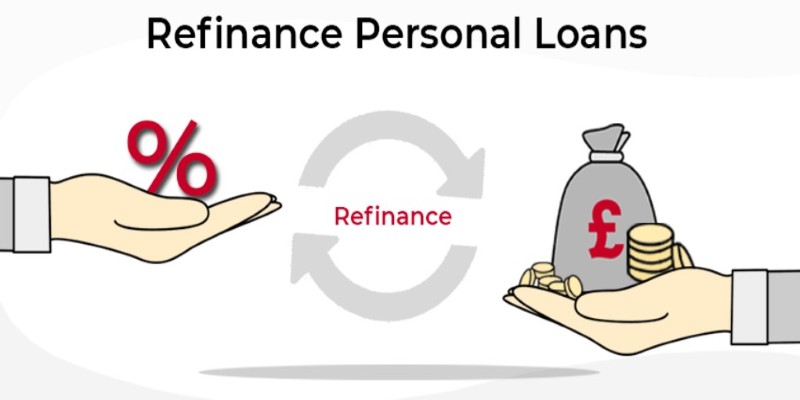A home equity loan is one of the smartest ways to unlock the value of your home to fund big-ticket expenses like home renovations, medical bills, or debt consolidation. But what exactly is a home equity loan, and how do you get one? If you're looking for answers, you're in the right place. This guide walks you through everything you need to know—from understanding how home equity loans work to securing the best deal.
What Is a Home Equity Loan?

A home equity loan, often called a "second mortgage," lets you borrow money using the equity in your home as collateral. Equity is the difference between your home's current market value and the remaining balance on your mortgage.
For Example
- If your home's current value is $400,000 and your remaining mortgage balance is $250,000, your equity is $150,000.
Using a home equity loan, lenders will generally permit you to borrow some percentage of that equity (typically 85% or less).
Benefits of a Home Equity Loan
- Fixed Interest Rates: Most home equity loans come with fixed interest rates, making your monthly payments predictable.
- Large Loan Amounts: Borrow a significant amount, depending on your equity.
- Tax Deductible: Interest may be tax-deductible if the funds are used for home improvements.
- Lower interest rates: Generally, home equity loans have lower interest rates compared to credit cards or personal loans.
- Flexible payment options: You can choose between fixed payments or interest-only payments with a balloon payment at the end of the loan term.
Considerations When Taking Out a Home Equity Loan
- Loan Fees: Like any other loan, there may be fees associated with taking out a home equity loan, such as application fees, appraisal fees, and closing costs.
- Risk of Foreclosure: Your home serves as collateral for the loan, so if you're unable to make payments, you risk losing your home.
- Impact on Credit Score: Taking out a new loan can impact your credit score, depending on factors such as the amount borrowed and your payment history.
- Interest Rates: Interest rates for home equity loans may be higher than those for a traditional mortgage or refinancing, so it's important to shop around and compare rates from different lenders.
Step 1 Understand Your Financial Position
Before approaching a lender, take a good look at your financial situation. Calculate how much equity you have in your home and evaluate your overall financial health.
Here’s how to calculate your home equity:
- Determine your current home value (use recent appraisals or online estimators).
- Subtract your remaining mortgage balance from the home value.
Additionally, ask yourself the following questions:
- How much do you really need to borrow?
- What monthly payment can you comfortably afford?
- Can your credit report withstand scrutiny?
Understanding your needs and financial capacity upfront will save you time and effort later in the process.
Step 2 Check Your Credit Score
Your credit score plays a crucial role in determining your eligibility and the interest rate offered on a home equity loan. Most lenders require a minimum credit score of 620, but a score of 700 or above will likely secure better terms.
To check your credit score, utilize free services from websites like Credit Karma, or request a report from one of the major credit bureaus (Equifax, Experian, or TransUnion).
If your credit score needs improvement, take steps to boost it before applying. Paying off credit card balances or fixing errors on your credit report can have a big impact.
Step 3 Shop Around for Lenders
Not all lenders offer the same terms, so shopping around is essential. Start by checking with your current mortgage lender, as they might offer loyalty discounts or lower fees. However, don’t stop there.
Where to look for lenders:
- Local Banks & Credit Unions: Known for their personalized service, these institutions often have competitive rates.
- Online Lenders: Convenient and often faster, online lenders offer transparent comparisons and lower applicant thresholds.
Compare offers based on interest rates, fees, and loan terms to find the best deal.
Step 4 Prepare Your Documentation
To apply for a home equity loan, you'll need to provide documentation that demonstrates your ability to repay the loan. Having these documents prepared in advance will speed up the application process.
Commonly required documents include:
- Proof of income (pay stubs, tax returns, or bank statements).
- Proof of homeownership (mortgage statements or property deeds).
- Recent credit reports.
- Identification (government-issued ID or social security card).
Step 5 Apply for the Loan
Once you’ve chosen a lender and gathered your paperwork, the next step is to submit your application. Many lenders offer online applications, making the process quick and convenient.
During the application process, expect the lender to perform the following:
- Credit Check: They’ll evaluate your creditworthiness based on your credit score and payment history.
- Home Appraisal: To confirm your home’s market value, a professional appraisal will likely be required.
- Debt-to-Income Ratio (DTI) Check: Lenders assess your ability to handle new debt by calculating your DTI. This is the percentage of your income spent on existing debt payments.
Step 6 Evaluate the Loan Terms Before Signing

Once your application is approved, the lender will present you with a loan offer. It’s crucial to review the terms carefully before signing anything.
Key factors to evaluate include:
- Loan Amount: Ensure the loan meets your funding needs.
- Interest Rate: A lower rate will save you money over time.
- Repayment Term: Understand the length of time for which you’ll be making payments.
- Fees: Watch out for closing costs, application fees, or prepayment penalties.
If you’re unsure about any terms, don’t hesitate to ask your lender for clarification.
Conclusion
A home equity loan can be a powerful financial tool when used wisely. Whether it’s for starting a business, funding education, or renovating your home, this loan offers flexibility and affordability. By following the steps outlined above, you can confidently navigate the application process and secure the best possible terms. Remember to consider the loan amount, interest rate, and repayment terms carefully before committing to a home equity loan.












